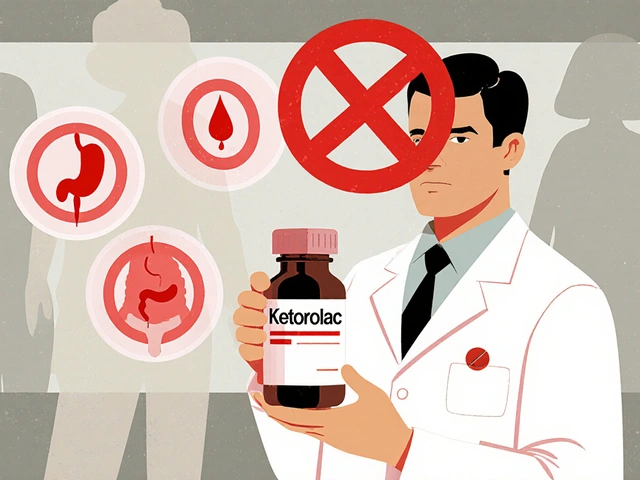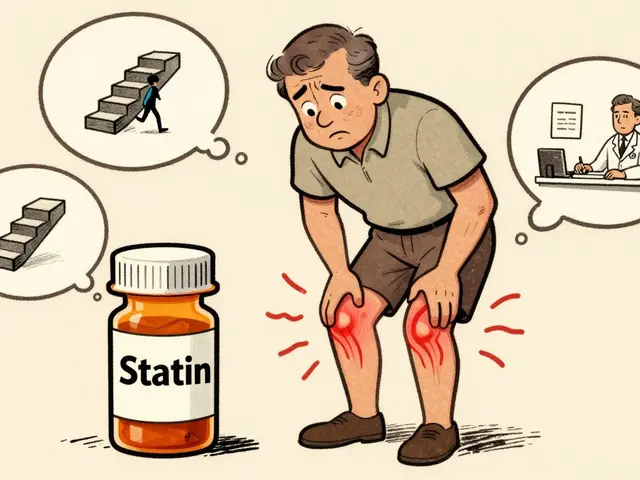Vitamin D supplements are a class of dietary products that deliver the fat‑soluble vitamin D to help the body maintain optimal calcium balance, support immune function, and regulate mood. They come mainly as VitaminD3 (cholecalciferol) derived from lanolin or fish oil, and VitaminD2 (ergocalciferol) sourced from mushrooms or yeast. For most adults, a daily dose of 800-2000IU meets the recommended intake, especially when sunlight exposure is limited.
Why Make Vitamin D Supplements Part of Your Everyday Health Plan?
- Boosts the immune system’s ability to fend off infections.
- Strengthens bones and reduces fracture risk.
- Improves mood and may lower depression symptoms.
- Supports heart health and blood pressure regulation.
- Enhances muscle function and reduces falls in older adults.
- Assists in hormone regulation, especially parathyroid hormone.
- Works synergistically with calcium and magnesium for optimal mineral balance.
- Compensates for limited sunlight exposure during winter months.
- May lower the risk of certain cancers, according to long‑term cohort studies.
- Simple, low‑cost addition to a balanced diet.
1. Immune System Fortification
Research from the National Institutes of Health shows that individuals with serum 25‑hydroxyvitamin D levels above 30ng/mL experience a 12% lower incidence of acute respiratory infections. Immune system comprises white blood cells, antibodies, and signaling molecules that defend against pathogens. Vitamin D stimulates antimicrobial peptides like cathelicidin, giving the frontline defense a boost.
2. Bone Strength and Calcium Absorption
Calcium alone can’t be effectively used without vitaminD. The hormone‑like action of vitaminD enhances intestinal calcium absorption from about 10% to 35%. Bone density reflects the mineral content of bone tissue and predicts fracture risk improves markedly when serum vitaminD stays within the optimal range.
3. Mood Regulation and Mental Well‑Being
Several randomized trials report that daily supplementation of 2000IU reduces scores on the Beck Depression Inventory by an average of 6 points. VitaminD receptors are abundant in the hippocampus, a brain region tied to mood regulation. Mood encompasses emotional states such as happiness, sadness, and anxiety appears to benefit from the neuro‑protective effects of the vitamin.
4. Cardiovascular Protection
Observational data from the Framingham Heart Study link higher vitaminD levels with a 15% lower risk of hypertension and a modest reduction in coronary artery calcification. The vitamin helps modulate the renin‑angiotensin system, which controls blood pressure.
5. Muscle Function and Fall Prevention
Older adults who maintain serum vitaminD above 30ng/mL show a 25% drop in fall‑related injuries. VitaminD improves muscle fiber contraction speed, which translates to better balance and reaction time.
6. Hormone Balance - Parathyroid Hormone (PTH)
When vitaminD is deficient, the parathyroid glands release more PTH to pull calcium from bones, weakening them over time. Maintaining adequate vitaminD keeps PTH in check, preserving skeletal integrity.

7. Synergy with Calcium and Magnesium
Calcium Calcium is a mineral essential for bone formation and muscle contraction works best when paired with vitaminD, while Magnesium acts as a co‑factor for the enzyme that converts vitaminD into its active form. A balanced supplement regimen ensures the three nutrients support each other.
8. Seasonal Sunlight Deficit
People living north of the 37th parallel receive insufficient UVB rays during the autumn and winter months. Skin synthesis can drop to less than 10% of summer levels, making supplementation crucial for maintaining year‑round adequacy.
9. Potential Cancer Risk Reduction
Long‑term cohort studies, such as the European Prospective Investigation into Cancer and Nutrition (EPIC), suggest a 10% lower incidence of colorectal cancer in participants with consistently higher vitaminD status.
10. Cost‑Effective Health Investment
A month’s supply of quality vitaminD3 capsules typically costs under $10, yet the potential savings from avoided doctor visits, fractures, and chronic disease management can run into thousands of dollars annually.
Choosing the Right Supplement - A Quick Comparison
| Attribute | VitaminD3 (Cholecalciferol) | VitaminD2 (Ergocalciferol) | Multivitamin (contains D) |
|---|---|---|---|
| Source | Lanolin or fish oil | Mushroom or yeast | Blend of vitamins & minerals |
| Bioavailability | ~1.5× higher than D2 | Lower than D3 | Varies, usually 400-800IU D per tablet |
| Typical Dose | 800-2000IU | 800-2000IU | 400-1000IU (combined) |
| Best For | General supplementation, bone health | Vegetarians, those allergic to fish | Broad nutrient coverage |
Practical Tips for Daily Use
- Take your supplement with a meal containing fat; vitaminD is fat‑soluble.
- Check your serum 25‑hydroxyvitamin D level if you have risk factors (obesity, malabsorption, limited sun).
- Start with 1000IU if you’re unsure; increase gradually under medical guidance.
- Avoid megadoses (>10,000IU) unless prescribed; excess can lead to hypercalcemia.
- Pair with 500mg calcium and 300mg magnesium for optimal bone support.
Related Concepts and Next Steps
Understanding how vitaminD fits into a holistic wellness plan opens doors to other topics:
- Seasonal Affective Disorder a mood disorder linked to reduced daylight exposure - explore light therapy.
- Gut Microbiome the community of microorganisms influencing nutrient absorption - learn about probiotic synergy.
- Heart Health cardiovascular well‑being affected by blood pressure and lipid profiles - see how omega‑3s complement vitaminD.
- Bone‑Strengthening Exercise weight‑bearing activities that stimulate bone remodeling - integrate resistance training.

Frequently Asked Questions
How much vitaminD should an adult take daily?
Most health authorities recommend 800-1000IU per day for adults, but doses up to 2000IU are safe for most people, especially in winter or for those with limited sun exposure.
Is vitaminD2 as effective as vitaminD3?
VitaminD3 is generally more bioavailable-about 1.5 times more effective at raising blood levels-so it’s the preferred choice unless you avoid animal sources.
Can I get enough vitaminD from sunlight alone?
In sunny climates, 10-15 minutes of midday skin exposure a few times a week may suffice. In higher latitudes or winter months, supplementation is often necessary.
Are there risks to taking too much vitaminD?
Excessive intake (>10,000IU daily long term) can cause hypercalcemia, leading to nausea, kidney stones, and heart rhythm problems. Stick to recommended doses unless supervised by a clinician.
Should I take vitaminD with food?
Yes. Because it’s fat‑soluble, consuming it with a meal that contains healthy fats (e.g., avocado, nuts, olive oil) improves absorption.
Can vitaminD help with weight loss?
Some studies link adequate vitaminD levels with better metabolic health and reduced fat accumulation, but it’s not a magic weight‑loss pill. Combine it with diet and exercise for best results.
Is it safe to take vitaminD and calcium together?
Absolutely. VitaminD actually enhances calcium absorption, so the combination is commonly recommended for bone health.
How often should I test my vitaminD levels?
Testing once a year is sufficient for most people. If you have risk factors (obesity, malabsorption, chronic kidney disease), your doctor may suggest more frequent monitoring.






14 Comments
i just started taking d3 last month and honestly? my energy’s way better. no more 3pm crashes. also my skin isn’t as dry. weird how something so simple makes a difference. ty for the post :)
oh sure. take your little vitamin d capsules and pretend you’re not being manipulated by the pharmaceutical-industrial complex. sunlight is free. supplements? that’s how they get you hooked. next you’ll be buying ‘immune-boosting’ gummies with glitter in them. 🤡
OMG I’ve been taking 5000 IU since 2021 and my glow is UNREAL. like, people ask if I got a facial. also my therapist said my mood shifts are ‘remarkably stable.’ i’m basically a vitamin D goddess now. 💅✨
same. i take mine with avocado toast. it’s my morning ritual. also, i got my levels tested and they’re at 68 ng/mL. like, queen energy. 💎👑
While the assertion that vitamin D supplementation confers broad-spectrum health benefits is statistically plausible in observational cohorts, the clinical significance remains confounded by confounding variables including socioeconomic status, dietary intake, and physical activity levels. The cited Framingham data, for instance, fails to account for residual confounding. A meta-analysis by the Cochrane Collaboration (2023) concluded no significant mortality benefit from routine supplementation in healthy adults.
in india, we’ve known this for ages - sunbathing at dawn, eating ghee with turmeric, it’s all connected. vitamin D isn’t just a supplement, it’s a rhythm. my grandma used to say, ‘sun is the first doctor.’ modern science just caught up. also, magnesium is the quiet hero here - without it, D just sits there like a useless ornament. and yes, d3 > d2, no debate. but if you’re vegan? get your lichen-based d3. it’s expensive but clean.
i’ve been taking 2000 IU daily since moving from florida to washington. before, i was constantly sick in winter - colds every 3 weeks. since starting, i’ve had exactly one cold in two years. not to mention, my seasonal sadness? gone. i used to dread november. now i just make tea and read. also, i pair it with magnesium glycinate - my muscles don’t cramp anymore. and honestly, the cost? less than my daily latte. if you’re skeptical, get a blood test. it’s cheap at labcorp. i was at 18 ng/mL. now i’m at 52. it’s not magic. it’s biology. and i’m not even that disciplined about health - i eat pizza on weekends. but this? this one thing changed everything.
wait so you’re telling me i don’t need to buy that $40 moonlight lamp? i thought that was the real solution. 😅
the synergy between magnesium, calcium, and vitamin D is so elegant… like a little biochemical ballet. i didn’t realize my magnesium deficiency was sabotaging my D absorption - my levels were ‘normal’ but inactive. once i added 300mg of magnesium citrate? my energy skyrocketed. also, i take mine at night - helps me sleep. it’s not just a supplement, it’s a conversation between nutrients. 🌙
you got this!! 💪 one capsule a day is a small act of self-love. if you’re feeling low, tired, or just ‘off’ - try it for 60 days. you owe it to yourself. i started last january and now i’m hiking in the snow like i’m in a commercial. you’re not broken - you’re just low on sunshine. fix it. 🌞❤️
the table comparing d2 and d3 is helpful, but i’d add that for vegans, lichen-derived d3 is now widely available - brands like vitashine are reliable. also, don’t forget that absorption varies by body fat percentage - if you’re overweight, you might need more. i’m 5’9”, 220lbs, and i take 3000iu. my doc says it’s fine. consistency > dosage. just take it with food. and yes, i typoed ‘d3’ as ‘d2’ in my last comment. oops.
the clinical data presented is largely consistent with current guidelines from the Endocrine Society. However, the recommendation to take up to 2000 IU daily for all adults may be overly generalized. Individuals with renal impairment, sarcoidosis, or hyperparathyroidism require individualized dosing. Caution is advised.
the notion that vitamin D supplementation reduces cancer incidence is based on correlational epidemiology and has not been validated in randomized controlled trials with cancer as a primary endpoint. The EPIC study, while large, is subject to confounding by dietary and lifestyle factors. Until prospective, double-blind, placebo-controlled trials demonstrate causality, claims of cancer risk reduction remain speculative.
AMERICA NEEDS THIS. OUR KIDS ARE SITTING INSIDE ALL DAY. NO SUN. NO VITAMIN D. JUST SCREENS AND SODA. WE’RE TURNING INTO ZOMBIES. TAKE THE SUPP. STAND IN THE SUN. BE AMERICAN. 🇺🇸🔥
Write a comment